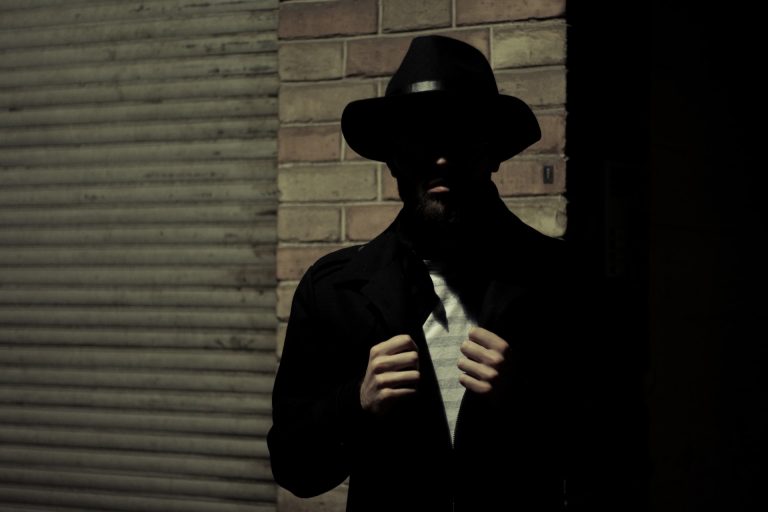The Secret Language Of Lies: 17 Body Language Cues That Might Signal Deception
You know that feeling in your gut—the one that says, “Something’s off” before you can even explain why? It’s not paranoia. It’s instinct. Our bodies are wired to notice what words can’t say out loud.
But here’s the messy truth: spotting a lie isn’t as easy as TV makes it look. There isn’t one magical sign—a twitch, a blink, a stutter—that guarantees you’re being lied to. Most liars are way better at hiding the truth than we’d like to believe.
And sometimes, good people squirm or stammer when they’re scared or anxious, too. Still, there are clues. Sometimes, they’re tiny—a muscle in the jaw, a sudden blink, a voice that cracks at the wrong moment. Other times, you catch it in the way someone’s words trip over their own gestures.
This isn’t about suspicion or cynicism. It’s about learning to trust what your eyes, ears, and intuition are already telling you. Here’s what I wish someone had told me about the body language of lies—the cues, the weird moments, the almost-too-human giveaways.
1. Inconsistent Facial Expressions

She smiled, but her eyes didn’t join in. You know that look—where the lips stretch wide, but there’s a flatness, even a flicker of worry, around the eyes. Genuine happiness lights up the whole face, but when someone’s faking it, you can sense the disconnect.
I once watched a friend lie about a promotion. Her mouth smiled, but the muscles around her eyes barely moved. There’s a reason: real smiles activate tiny muscles near the eyes, especially the ones that cause crow’s feet. Fakes just can’t fake that.
If you notice forced smiles or mismatched expressions—like someone laughing with sad eyes—pay attention. It doesn’t necessarily mean they’re dishonest, but their emotions likely don’t match their claims. Our faces tell stories we wish we could hide.
When words and expressions clash, it’s usually the face that slips up. Even experienced deceivers struggle to mask every flicker. Sometimes, it’s the tiniest inconsistency that reveals what they’re trying to bury.
2. Shifty Eye Movements

Have you ever tried to hold a conversation with someone who just won’t meet your gaze? Or worse, someone who gives you that too-intense, unblinking stare? Eyes are the loudest part of a quiet lie.
Some people look away because they’re hiding something; others overcompensate, never breaking eye contact to prove a point. Watch for patterns: darting eyes, excessive blinking, or pupils that seem wider than usual. It isn’t about where they look, but how often their eyes move when the topic gets tricky.
When people lie, they subconsciously want to escape—they scan exits, glance at the floor, or blink fast. But here’s the twist: not everyone who avoids eye contact is guilty. Sometimes, it’s shame, anxiety, or old habits. The trick is to notice when their eyes behave out of character.
3. Restless Fidgeting
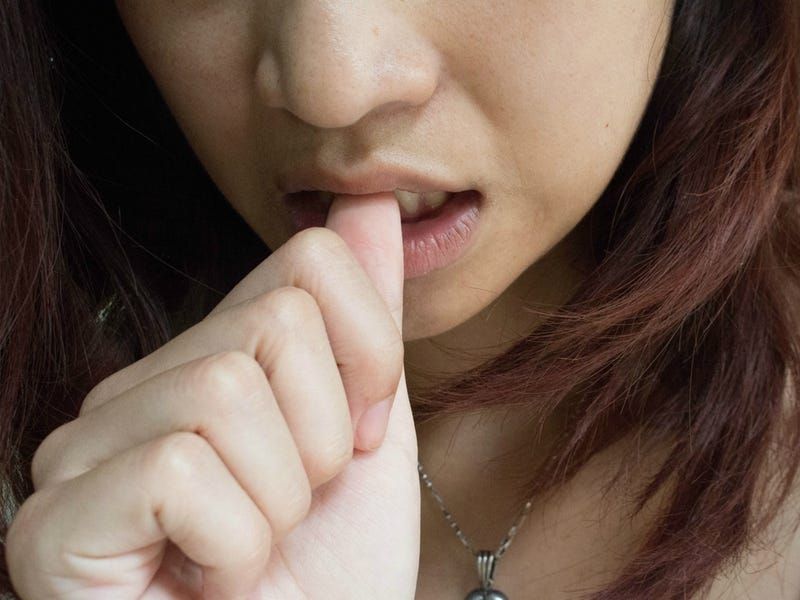
She couldn’t sit still. Her fingers drummed the table, her feet shifted, and she kept reaching for her phone, then putting it down again. Fidgeting is the body’s way of leaking discomfort into the open air.
When people lie, their nerves go into overdrive. The energy has to go somewhere, so it spills out through restless hands and feet. Watch for picking at nails, playing with jewelry, or tapping objects—especially when the conversation gets tense.
Here’s why: lying stimulates the stress response. Our bodies get jittery, our skin tingles, and our brains start scanning for escape. But real life isn’t always so clear-cut. Chronic fidgeters exist, and some people just get anxious when put on the spot.
Still, if you notice sudden, unusual restlessness when tough questions are asked, it’s worth listening to your intuition.
4. Contradictory Gestures

It’s hard to ignore when someone’s mouth says one thing and their body says another. Have you ever caught someone nodding while denying something, or shaking their head yes when their words say no?
These contradictory gestures scream, “Something’s not adding up.” Our brains are wired to coordinate speech with movement, but lying messes up that harmony. When someone’s hand gestures clash with their spoken words, it’s a red flag—maybe not for a grand conspiracy, but at least for some kind of inner conflict.
It’s almost funny how transparent people become when they try too hard. If the body and voice are out of sync, the inconsistency speaks volumes—and the gestures often say what the words won’t.
5. Full-Body Stiffness

Do you notice how someone can suddenly go statue-still when you ask the wrong question? That freeze isn’t confidence—it’s a shield. The body gets stiff, like it’s bracing for impact, because lying can feel like being caught in headlights.
I remember my sister’s posture at family dinners—rigid, arms glued to her sides, shoulders tensed up—every time she fibbed about seeing her ex again. It’s not just a posture; it’s self-protection. When people lie, they try to control their movements too much, ending up looking unnatural.
A relaxed person moves easily, shifts in their seat, uses their arms freely. But when the stakes are high, and truth feels dangerous, bodies lock up. It’s not always about guilt—sometimes it’s fear. But if someone suddenly becomes a statue when the topic changes, take notice.
6. Self-Touching Gestures
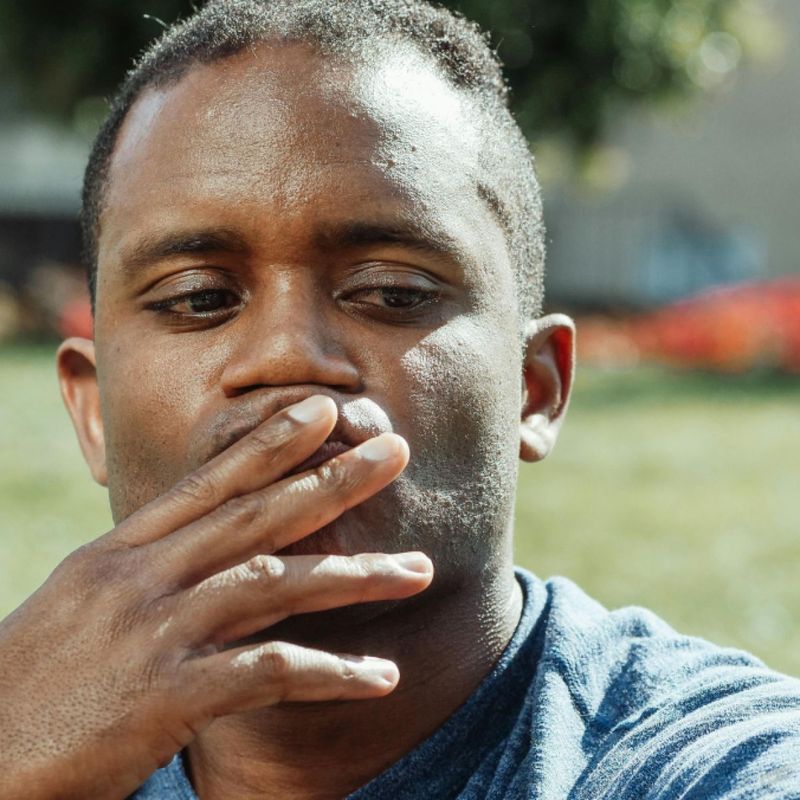
It’s almost second nature—someone’s hand brushing their neck, tugging at an earlobe, or fussing with their hair when things get uncomfortable. Self-touching isn’t just a nervous habit; it’s the body trying to comfort itself in stressful moments.
When people lie, anxiety spikes, and these small gestures show up like clockwork. It’s a subconscious attempt to soothe nerves, as if a simple touch could smooth over the mess inside. Watch for repeated face touches, rubbing the back of the neck, or covering the mouth after a shaky answer.
There’s a reason poker players wear sunglasses and keep their hands still. Even pros can’t stop their hands from betraying them. These self-soothing motions don’t confirm a lie on their own, but paired with other cues, they can be surprisingly revealing.
7. Microexpressions

Blink and you’ll miss them. Microexpressions are those lightning-fast flashes of emotion that slip out before someone can catch themselves. A moment of fear, a flicker of anger, or a split-second smirk—all gone before you can name them.
It’s unsettling, but fascinating. The body reacts faster than our words can cover. These tiny, involuntary expressions are the truth leaking through the cracks.
Detecting them takes practice (and sometimes feels like a superpower). But if you notice a shadow of something real—an emotion that doesn’t match the moment—pause. A face can recover, but that flicker is often the clearest signal of what’s underneath.
8. Frequent Blinking

Have you ever watched someone’s eyelids flutter like moth wings when the questions get tough? Blinking isn’t just about dry eyes—it can be stress, distraction, or a brain scrambling for cover.
People blink more when they’re lying. It’s a physical reaction to mental strain. Making up stories takes real work, and the body tries to keep up by blinking fast—like hitting a mental reset. Sometimes, the opposite is true: a liar might barely blink at all, hoping to seem relaxed.
I noticed this during arguments with my brother. The more he blinked, the less I believed him. It wasn’t hard evidence, but it was enough to make me wonder. If someone starts blinking more than usual during crucial moments, don’t brush it off.
9. Speech Hesitation
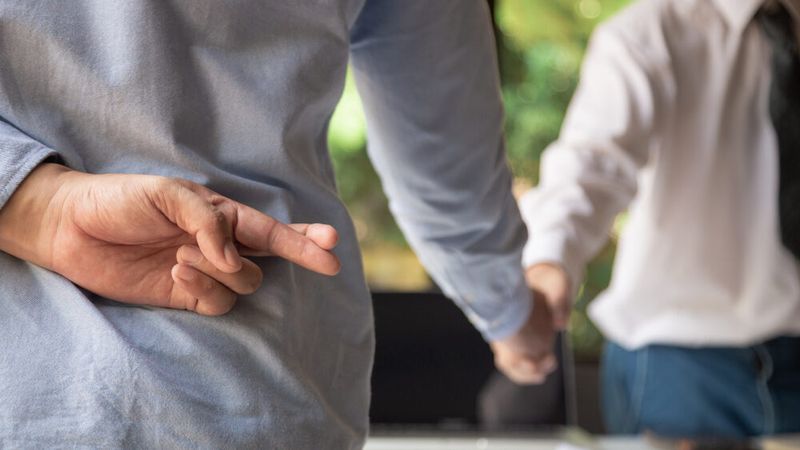
“Uh… well… you see—” Stumbling for words isn’t always a lie, but it’s often a sign someone’s mind is spinning. When people hesitate, pause, or stumble, it’s usually because they’re working overtime to get the story straight.
Lies come with heavy baggage. The brain has to remember details, keep track of what’s been said, and avoid slip-ups. That extra mental load leads to awkward silences, mixed-up sentences, and a desperate search for the right words.
I once asked a coworker a question she didn’t expect, and the pause was deafening. It’s that split-second where you can almost see gears turning. A stumble isn’t a confession, but when hesitation shows up at just the right (or wrong) time, your instincts might be ahead of your logic.
10. Overly Detailed Responses

When someone goes on and on, piling details onto details, it can feel weirdly suspicious. Over-explaining doesn’t always mean honesty; sometimes, it’s a smokescreen for the truth.
Liars often get caught up in specifics. They hope more information equals more believability. But the truth rarely needs that much backup. If someone’s story suddenly gets intricate—times, places, tiny events—especially when they’re usually brief, that’s worth a side-eye.
My old roommate once invented a whole timeline for why she missed rent. Every minute accounted for, down to the brand of chips she bought. The more complicated her story got, the less real it sounded. Honest answers tend to be straightforward. Liars sometimes build elaborate stories hoping you’ll get lost in the maze.
11. Pitch Changes
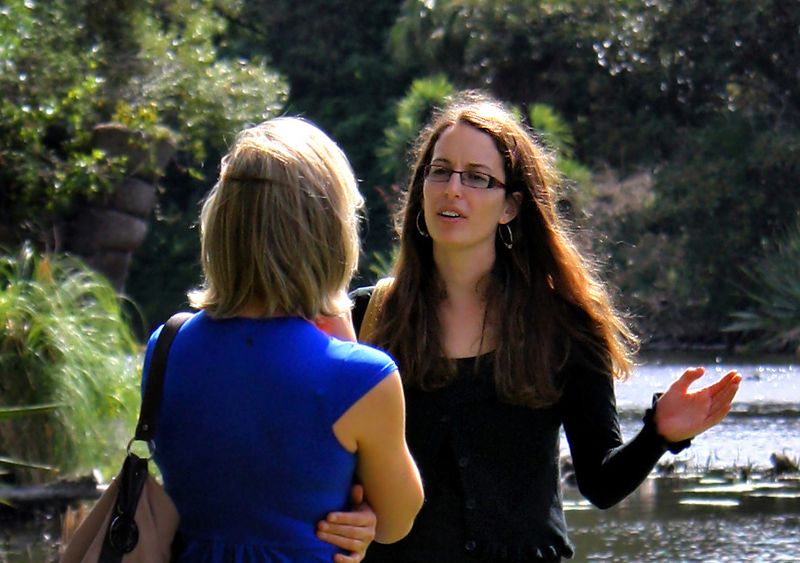
Do you ever hear someone’s voice jump an octave when things get uncomfortable? Pitch isn’t just about singing; it’s a telltale sign of nerves and stress. A sudden high-pitched voice can be the sound of a lie trying to sneak by.
It’s a stress response—tight vocal cords, breath caught in the chest, words coming out sharper or thinner than usual. Sometimes, the opposite happens: a voice drops low, trying to sound calm while the rest of the body screams tension.
Not every shift means someone’s being dishonest, but if the tone changes right when the story does, there might be more going on beneath the surface. Voices, like faces, can give us away without meaning to.
12. Unusual Speech Rate
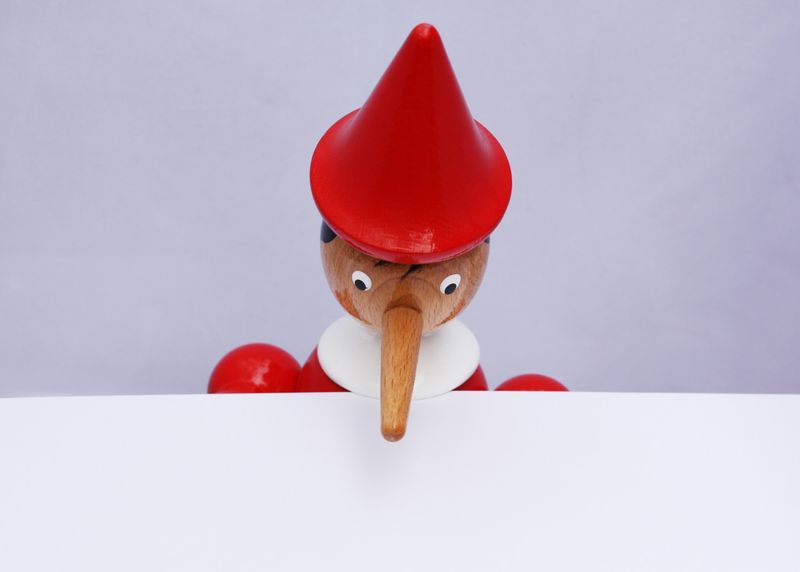
Words tumble out fast when someone is desperate to get through a story unscathed. Or sometimes, a liar slows down, stretching each word like it’s made of glass. Speech rate is a sneaky, subtle cue.
When someone is hiding something, their pace often speeds up—like if they say it fast enough, the gaps won’t be noticed. Other people do the opposite, picking their words with exaggerated care, hoping to avoid mistakes. Both can raise flags.
What matters is the change from their usual speaking rhythm. If you notice words coming way too fast or painfully slow when the questions get pointed, it’s less about what they’re saying and more about why they’re suddenly so cautious—or so rushed.
13. Volume Fluctuations

A sudden shout, a whisper that barely leaves the throat—volume swings are the body’s way of making noise when words aren’t enough. Sometimes, people get louder to sound convincing or drown out their own doubts.
Other times, voices dip low, shrinking with guilt or fear. Volume isn’t just about being heard—it’s about control. Loud can mean defensiveness, soft can mean retreat.
What stands out is the shift. If someone who’s typically calm suddenly raises or lowers their voice when pressed, pay attention to the dissonance—it often speaks louder than the words themselves.
14. Sweating Excessively
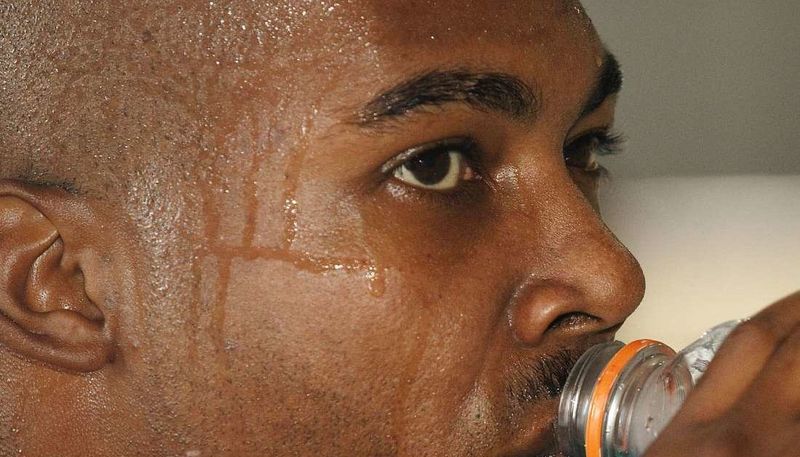
Sweat can give away secrets your mouth would never confess. It’s not just about the room being hot—sometimes, sweat shows up even in the chilliest spaces, all because someone feels cornered.
Lying triggers adrenaline, and the body responds by turning on the faucets. You might spot a damp brow, clammy hands, or someone constantly dabbing at their upper lip.
Sweat doesn’t care about self-control—it’s your nervous system running the show. Of course, some people just sweat more than others, but if someone suddenly starts glistening under pressure, don’t dismiss it—it might be more than nerves.
15. Tense Jaw and Clenched Teeth

The jaw is one of the first places tension gathers when someone’s hiding something. You might notice clenched teeth, tight lips, or even grinding—a jaw that seems locked up tight.
It’s a self-defense move, a way to hold back words that want to escape. The rest of the face might try to play it cool, but the jaw gives it all away.
Even if you’re not watching closely, you might hear it—words forced through tight lips, the dull click of teeth under stress. If someone looks relaxed but their jaw is fighting to stay shut, they might be holding something in—literally.
16. Covering the Mouth
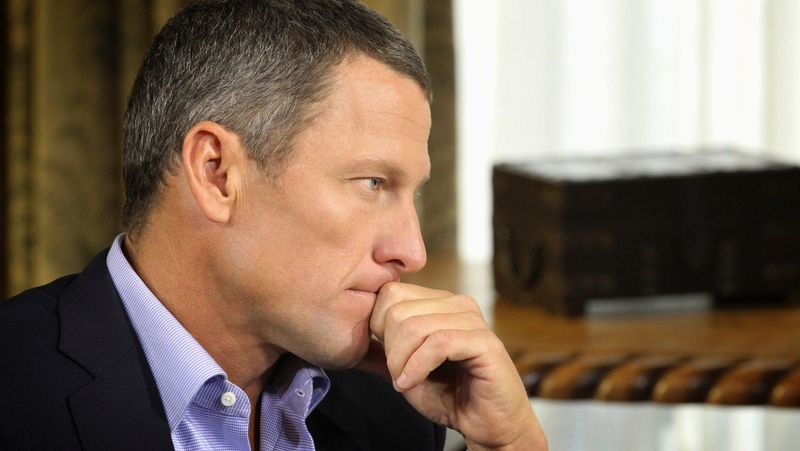
You know the classic move: hand over the mouth, like a secret is trying to sneak out. It’s a childhood reflex—cover your lips so no one can read them, not even yourself.
When people lie, they sometimes cover their mouths without realizing. It’s as if the body is trying to block the lie from escaping. I saw my little brother do this every time he fibbed about broken vases growing up. Grown-ups do it too, though usually more subtly—a cough, a finger over the lips, a napkin held just-so.
It’s not always deception, but when someone hides their mouth mid-story, especially during a tricky moment, it’s like they’re trying to contain something. Sometimes, the silence behind the hand says more than the words that follow.
17. Sudden Scratching or Itching

Ever notice someone start scratching at their neck, ear, or face when the conversation heats up? It’s not always allergies. Sometimes, lying makes the skin crawl in more ways than one.
I’ve seen people start rubbing their arms or tapping their nose right after telling a whopper. Stress releases histamine, which can actually make you itch—so the urge to scratch or touch grows stronger when people are on the spot.
It’s a small thing, but it stands out if it happens suddenly and in sync with a tough question. Not every itch signals deception, but when it arrives at the exact moment pressure builds, it can be a subtle crack in the mask.




